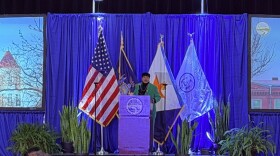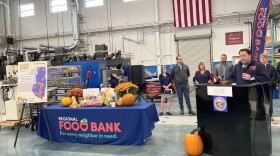“Adrian’s Law,” the legislation meant to stop dog owners from tying up their dogs outside for hours in high heat or freezing temperatures, is getting new life in the Syracuse Common Council after failing to pass the Onondaga County Legislature in April.
The council will hold a meeting Wednesday at noon to hear from the public and discuss how the law would work.
"In some discussions that I’ve had with our parks department leadership, and our dog control officers, and veterinarians, it is something we need," said Councilor Susan Boyle, who is spearheading the effort. "There is a substantial number of complaints, injuries and problems with animal care happening in the city of Syracuse. I think we need it and I’m looking forward to our discussion on it.”
Boyle said she has spoken with veterinarians who tell her dogs become distressed when they are tethered outside for hours in extreme temperatures and the law should pass as it is written.
“We need to make sure it’s enforceable, we need to make sure it’s written correctly, that our dog control officers see this as something that is a useful tool for them to combat something that they perceive as an issue,” Boyle said.
The law was proposed in the county legislature after a pit bull froze to death after being tied up outside of a home in Syracuse earlier this year. Legislators could not come to an agreement on some of the details of the law.
The city’s version would carry a maximum fine of $500 for a dog tied up outside in temperatures above 90 degrees or below 32 degrees for more than two hours.








